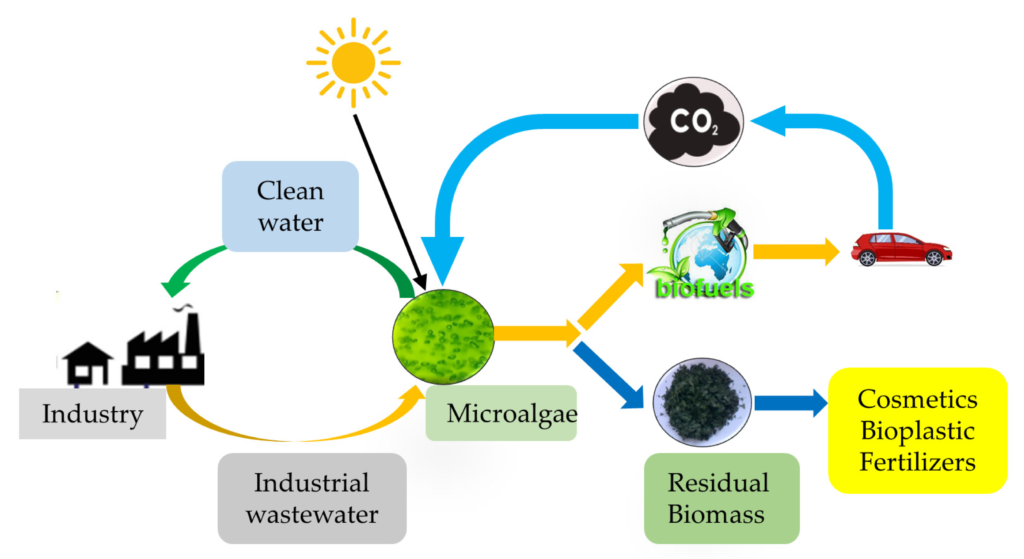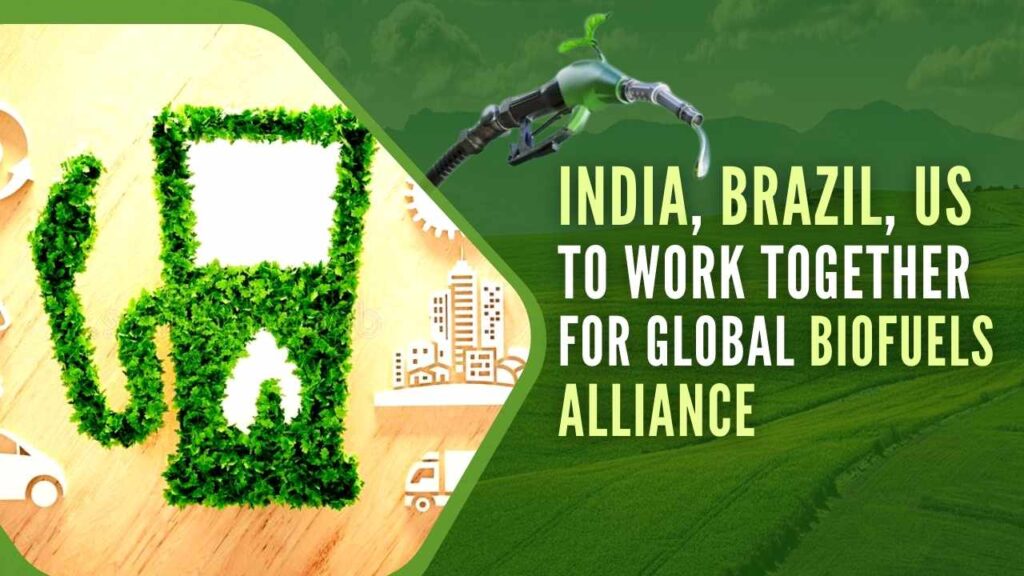Introduction – The Global Biofuels Alliance
In a world grappling with climate change and the need for sustainable energy sources, the Global Biofuels Alliance emerges as a beacon of hope. This article explores the vital role of the Global Biofuels Alliance in advancing the use of biofuels, mitigating climate change, and fostering a greener future for our planet.

A Sustainable Energy Solution
Before we dive into the significance of the Global Biofuels Alliance, let’s understand the broader context of biofuels and their importance in the fight against climate change.
Biofuels: A Sustainable Choice – The Global Biofuels Alliance
What Are Biofuels?
Biofuels are renewable fuels derived from organic materials, such as crops, algae, or waste. Unlike fossil fuels, they are a sustainable energy source because they can be produced continuously and do not deplete finite resources.
Environmental Benefits
- Reduced Carbon Emissions: Biofuels produce fewer greenhouse gas emissions compared to fossil fuels, helping combat climate change.
- Improved Air Quality: They emit fewer pollutants that harm air quality and human health.
- Lower Dependence on Oil: Biofuels reduce a nation’s reliance on imported oil, enhancing energy security.
The Need for a Global Approach – The Global Biofuels Alliance
Addressing climate change requires a concerted global effort. This is where the Global Biofuels Alliance steps in.
The Global Biofuels Alliance: A Force for Change
What Is the Global Biofuels Alliance?
The Global Biofuels Alliance is an international coalition of governments, organizations, and companies dedicated to advancing the production and use of biofuels worldwide. Its mission is to promote sustainable biofuels as a key solution to reduce carbon emissions and transition to a low-carbon economy.
Key Objectives
The Alliance focuses on several critical objectives:
- Advocacy: Lobbying for supportive policies and regulations at the national and international levels to promote biofuels.
- Research and Development: Funding research projects to improve biofuel production efficiency and reduce costs.
- Information Sharing: Facilitating the exchange of knowledge and best practices among member countries and organizations.
- Market Development: Expanding the global market for biofuels through collaboration and investment.
Member Countries
It boasts a diverse membership, with countries from every corner of the globe participating in its initiatives. This diversity is a testament to the universal recognition of biofuels’ importance in mitigating climate change.
Achievements and Milestones – The Global Biofuels Alliance
Over the years, the Alliance has achieved significant milestones:
- Global Agreements: Facilitating international agreements that promote biofuel production and consumption.
- Technology Advancements: Funding research leading to breakthroughs in biofuel production technology.
- Policy Influence: Shaping national and regional policies to support the growth of the biofuels industry.
The Environmental Impact of Biofuels – The Global Biofuels Alliance
Carbon Neutrality
One of the most compelling aspects of biofuels is their potential for carbon neutrality. When biofuels are produced sustainably and the carbon emitted during their use is balanced by the carbon absorbed during feedstock growth, they can be virtually carbon neutral.
Biodiversity Considerations
While biofuels hold great promise, their production should be carefully managed to avoid negative impacts on biodiversity. Sustainable practices, such as using marginal lands for feedstock cultivation, can mitigate these concerns.
Challenges and Controversies
Food vs. Fuel Debate
A longstanding controversy surrounding biofuels is the “food vs. fuel” debate. Critics argue that dedicating arable land to biofuel crops could reduce food production. However, sustainable biofuel practices can minimize these conflicts.
Land Use Change
Expanding biofuel production may lead to land use changes, potentially causing deforestation and habitat destruction. Responsible land use practices are essential to address this challenge.
The Future of Biofuels
Emerging Technologies
The biofuels industry continues to evolve with the emergence of advanced biofuels, such as algae-based fuels and cellulosic ethanol. These innovations offer even greater sustainability and efficiency.
Global Energy Transition
As countries worldwide commit to reducing their carbon emissions, biofuels are poised to play a crucial role in the transition to a low-carbon economy. Their compatibility with existing infrastructure makes them a practical solution.
Conclusion
It stands as a testament to the collective global effort required to combat climate change. With a commitment to sustainable biofuels and a dedication to advancing their production and use, the Alliance paves the way for a greener and more sustainable future. As we navigate the challenges of the 21st century, the role of organizations like the it cannot be underestimated in our quest for a cleaner and more sustainable world.

